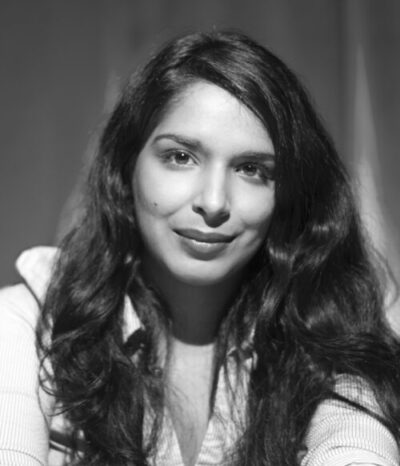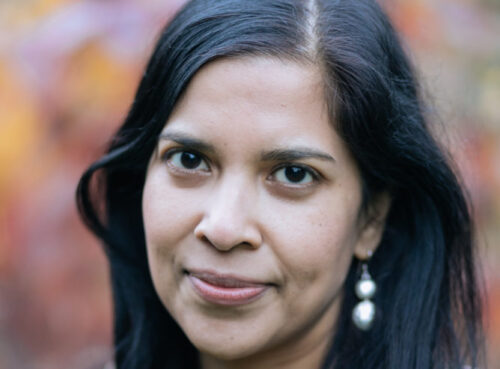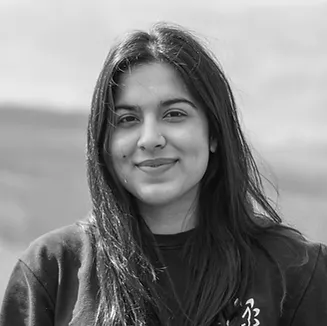As we prepare to celebrate South Asian Heritage Month, we thought we would take the opportunity to introduce you to 3 incredible women of South Asian heritage – and their unique contributions to saving our planet.
It’s the perfect opportunity to do so as we are seeing in real time the effects climate change is having specifically on their demographic. The UN reports that more than 80% of displaced individuals of climate change will be women. In addition, the majority of the communities that are and will continue to be affected are communities of colour and indigenous people.

Anita Sethi
Environmental writing has become one of the major turning points for raising awareness of the dangers facing our planet. Something Manchester born, journalist and writer, Anita Sethi is well aware of. Sethi has written some ground-breaking pieces that address British relations with nature, racism, and our uses of the environment. She has written for The Guardian, The Observer, The Times, and many more news outlets exploring topics surrounding culture and the environment. On top of this, her work has been anthologised into pieces such as Women in Nature (2021), Seaside Special: Postcards from the Edge (2018) and Seasons (2016).
Perhaps her biggest achievement yet is her award-winning book I Belong Here (2021). The idea for book and the trilogy that is to follow were sparked after Sethi was racially abused. She was told to; “go back to where you’re from’ whilst aboard the pennine express train travelling to Newcastle. Not letting the bigoted, misplaced comment get under her skin. She instead is inspired and takes us along on her journey across the Pennines, aka ‘the backbone of England’. On foot this time, exploring nature and the environment around her whilst examining ideas of ‘roots’ and belonging.
As a keen walker and a hiker, Sethi is constantly seeking out nature beyond the manic U.K. cities. Her time outside gives her chance to reflect on the way we treat our environment. And, how it’s not too dissimilar to how we treat others in current society. Referencing things like British banana plantations and railway developments, she makes connections between colonialism, slave labour and the commonwealth and how these have affected our earth and will continue to do so.
Sethi is a brilliant example of how environmentalist work is not just limited to protesting or activism.

Tessa Khan
Tessa Khan is now an environmental lawyer currently living in the UK. However whilst working for a non profit women’s rights organisation during her time living in Thailand. She realised how powerful the law and courts could be in regards to fighting climate change. When she heard of a court ruling, ordering the Netherlands to reduce its greenhouse-gas emissions.
Inspired by the case, she moved over to the UK and joined Urgenda (the climate case against the Dutch government). In partnership with Urgenda, she cofounded the Climate Litigation Network to support similar cases all over the world. With her background in international human rights, she was able to bring a new skillset to the organisation. Her main role is providing legal assistance to people who are fed up with their government and their climate polices. Ultimately, encouraging them to take them to court.
Through her work she has assisted many activist groups. Helping them in suing their government, getting them to make steady changes for a greener future. The company has helped many cases over the world, including Canada, Netherlands, New Zealand, Norway, Pakistan, and South Korea. But their biggest win came in 2019. When the Supreme Court of the Netherlands ordered their government to scale back on coal power. And to invest around 3 Billion Euros in cutting carbon emissions. Khans’ main hope for the future of the organisation is that it brings public attention to where their government is failing. And how, if supported, easy it is to provoke them into action.
 Image Credit: https://www.actionforconservation.org/about-us
Image Credit: https://www.actionforconservation.org/about-us
Zunaira Malik
Zunaira is the program manager for Action for Conservation. An organisation with a focus on inspiring young people to learn more about wildlife. And how to protect the natural world. The organisation goes into schools providing workshops centered around conservation. They also guide young people in where to find support if they decide to work in this sector. They also offer challenges where students can win a place at a Conservation camp. Once there, they can connect with one another and the nature they are surrounded with.
While Malik works for Action for Conservation, she is also taking her activism into her community. Ensuring that understanding around environmental issues are reframed. Malik is inspirational in that, throughout her life she has been dedicated to inciting change. Working and volunteering in anything that could contribute, help or make change to the climate emergency. From attending COP21 and COP22 as part of the Islamic Relief delegation to working as an advisor for Carbon Copy. She is keen to raise awareness and thinks the best way to do that is through education. Education can be the best tool to tackle climate change and how it affects our everyday life. She, just like Sethi and Khan is keen to highlight how climate solutions need to have people at the heart of it. That climate solutions will only fully work when we get social justice.
